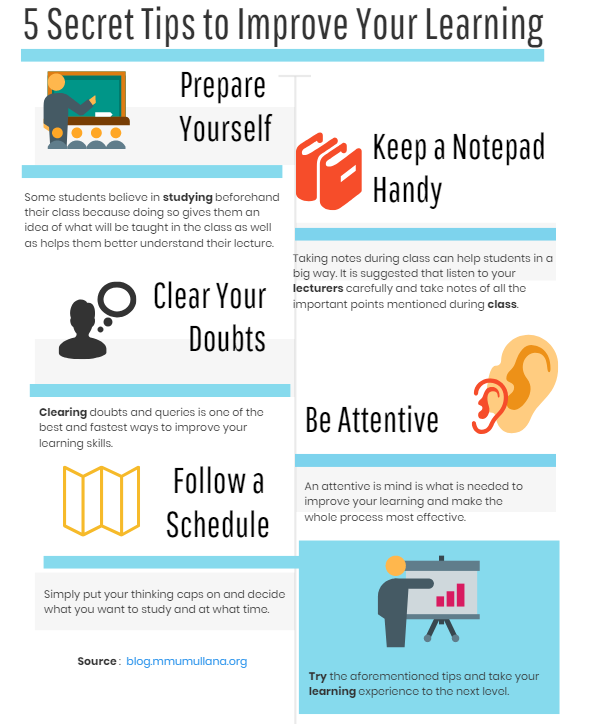As students, we all know the struggle of trying to absorb a large amount of information in a short period of time. Whether it’s for an upcoming exam or a project deadline, we often find ourselves feeling overwhelmed and unsure of the best way to approach our studies. However, with the right study techniques and strategies, we can maximize our learning potential and achieve success.
In this blog post, I will share with you some effective study techniques that I have personally found useful throughout my academic journey. These techniques have not only helped me manage my time efficiently but also enhanced my understanding and retention of the material.
1. Create a study schedule:
One of the most important aspects of effective studying is creating a well-structured study schedule. By allocating specific time slots for each subject or topic, you can ensure that you cover all the necessary material. Personally, I found that breaking my study sessions into smaller chunks of time, such as 30 to 45 minutes, followed by short breaks, helped me maintain focus and prevent burnout.
2. Find your optimal learning environment:
Finding a suitable learning environment can significantly impact your productivity. Some of us may prefer a quiet library or study room, while others find it easier to concentrate with some background noise. Experiment with different settings to discover what works best for you. Personally, I thrive in a quiet environment, so I often find a secluded spot in the library to study.
3. Use active learning techniques:
Engaging actively with the material is key to understanding and retaining information. Instead of passively reading or listening to lectures, try incorporating active learning techniques into your study routine. Some effective techniques include summarizing the material in your own words, teaching it to someone else, creating flashcards, or solving practice problems. These activities encourage active engagement with the content, making it easier to remember and apply later on.
4. Take regular breaks:
It’s important to give your brain some rest in between study sessions to avoid mental fatigue. Taking short breaks every hour or so can help you recharge and maintain your focus. Use this time to stretch, take a walk, or do something that relaxes your mind. Personally, I find that going for a quick walk outside helps clear my mind and rejuvenate my energy levels.
5. Practice self-testing:
Regular self-testing is a powerful technique to reinforce your learning. Instead of relying solely on reviewing notes or textbooks, test yourself on the material to assess your understanding. It can be as simple as creating flashcards with questions or taking practice quizzes. By identifying areas of weakness, you can focus your efforts on those specific topics and improve your overall comprehension.
6. Develop effective note-taking strategies:
Taking organized and concise notes during lectures or while studying is crucial for effective learning. To avoid overwhelm, try using different note-taking techniques like the Cornell method or the mind map approach. Personally, I prefer the Cornell method as it allows me to summarize key points in the main section and write questions or keywords in the margin for better recall later.
7. Utilize visual aids:
Visual aids can be powerful tools to enhance your understanding and memory recall. If you’re a visual learner, try creating diagrams, flowcharts, or concept maps to represent complex information visually. This technique not only helps you see the connections between different concepts but also aids in memorizing and recalling the material. Personally, I found that color-coding my notes and using visual cues helped me grasp complex concepts more easily.
8. Seek study groups or tutoring:
Sometimes, studying with a group of like-minded individuals or seeking help from a tutor can be beneficial. Group study sessions allow for discussions and the exchange of ideas, helping you see the material from different perspectives. Additionally, having a tutor can provide personalized guidance and support in areas that you may find challenging. Personally, I have found study groups to be very helpful, as they provide a supportive learning community and offer insights that I may have overlooked.
9. Get sufficient sleep:
Lastly, don’t underestimate the power of a good night’s sleep. It is during sleep that our brains consolidate and store information, making it easier for us to retrieve it later. By prioritizing sleep and maintaining a regular sleep schedule, you allow your brain to function optimally and enhance your overall learning experience. Personally, I make it a point to get at least 7-8 hours of sleep every night, especially during exam periods.
In conclusion, effective study techniques are essential for improving your learning capabilities. By creating a study schedule, finding your optimal learning environment, using active learning techniques, taking regular breaks, practicing self-testing, developing effective note-taking strategies, utilizing visual aids, seeking study groups or tutoring, and getting enough sleep, you can enhance your learning journey and achieve academic success. Remember, finding the right techniques that work for you may require some trial and error. So, be patient and keep experimenting until you find what helps you thrive academically. Good luck!
